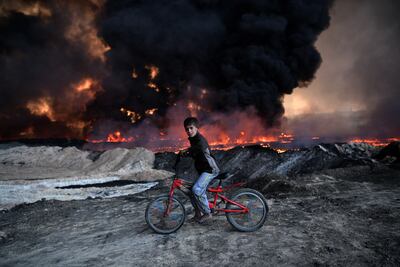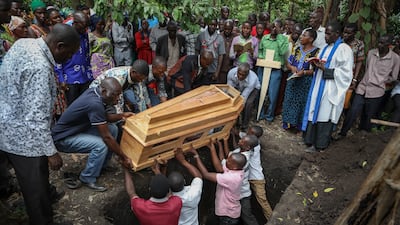An attack by the ISIS-linked Allied Democratic Forces on a school in Uganda last week was a cruel affirmation that after ISIS’s sustained retreats from strongholds in Iraq and Syria, its regional affiliates continue to exploit grievances and weak governance elsewhere to advance their sadistic brand of terror.
But, while the threat of ISIS in the Middle East appears to have abated for the moment, the region remains highly vulnerable. An ongoing climate crisis in this hot, parched land – where temperatures are rising at almost double the rates seen elsewhere – is exacerbating fragility and conflict risks. Newly collected data from Iraq suggests that ISIS – and other armed groups – may have historically benefited from the climate crisis, and a resurgent group, or others, may try to do so again.
Research in Iraq by Managing Exits from Armed Conflict, an initiative of the UN Institute for Disarmament Research, formerly hosted at the UN University Centre for Policy Research, has found that as climate change makes it increasingly difficult for many Iraqis to maintain their agricultural livelihoods, some are turning to armed groups to escape poverty and ensure their survival. At times of uncertainty and economic distress, these groups offer shelter, food and employment.

Iraq is ranked the fifth most at-risk country for climate breakdown, and climate change is widely felt across the state. Large-scale surveys revealed that certain localities are particularly hard hit, producing serious implications for conflict dynamics. In Tal Afar, for instance, of those respondents who knew people whose livelihoods were affected by climatic shifts, 29 per cent knew someone who had joined an armed group as a result. This included not only ISIS, but also groups that mobilised to fight ISIS.
Armed groups are known to prey on climate-vulnerable areas. Before 2014, for instance, ISIS targeted drought-affected Sunni-majority areas of Iraq, exploiting grievances about water scarcity and loss of agricultural livelihoods as well as spreading rumours that the Iraqi government’s agricultural policies were intentionally designed to harm Sunni farmers. There is some evidence to suggest that the group’s recruitment campaigns were better received in water-deprived communities than those better-resourced and more resilient to climatic shocks and shifts.
These dynamics are not confined to Iraq. Data on the links between climate change-related livelihood difficulties and armed group recruitment have emerged in other climate-vulnerable countries where MEAC researchers are active. In Colombia, Nigeria, Chad, Niger and Cameroon, a combination of environmental degradation and challenges to agrarian livelihoods appear to have compelled some people to join the ranks of armed groups like the FARC-EP and Boko Haram.
There is a threat that as climate change intensifies, conditions worsen and people become increasingly desperate, armed groups will take advantage and step up their outreach and recruitment efforts. Given the exploitation of the environment to fund armed groups – such as illegal deforestation and mining, and even wildlife trafficking – there is the potential for a vicious cycle to gain momentum with climatic shifts fuelling recruitment, and recruitment exacerbating climate change.
While there are valid concerns about securitising the climate crisis, it is clear that to effectively address climate change our efforts need to be conflict-sensitive, and to effectively prevent and respond to conflict our interventions need to be climate-sensitive.
What could this mean in concrete terms? In places like Iraq, and other parts of the Middle East, where conflict has broken out, and could again, introducing sustainable water management or improved climate-resilient crops could help communities adapt to climate change and avoid the collapse of agrarian economies. Reintegration interventions targeting former fighters could focus on teaching livelihood skills that are less vulnerable to climatic shifts – thereby ensuring their sustainable economic reintegration, and crucially, breaking their financial dependency on armed groups. On a wider scale we also need to see regional irrigation solutions and sustained efforts to address environmental degradation and emissions.
These solutions cannot be advanced without government and international support – and support remains limited. Estimates suggest, for example, that international climate adaptation finance flows to developing countries are five to 10 times below the required levels. Proposals emerging from the Summit for a New Global Financial Pact, hosted by French President Emmanuel Macron in Paris last week, are promising. But, until we see these proposals implemented, the threat posed by armed groups in climate-vulnerable communities across the Middle East – and beyond – will remain.

